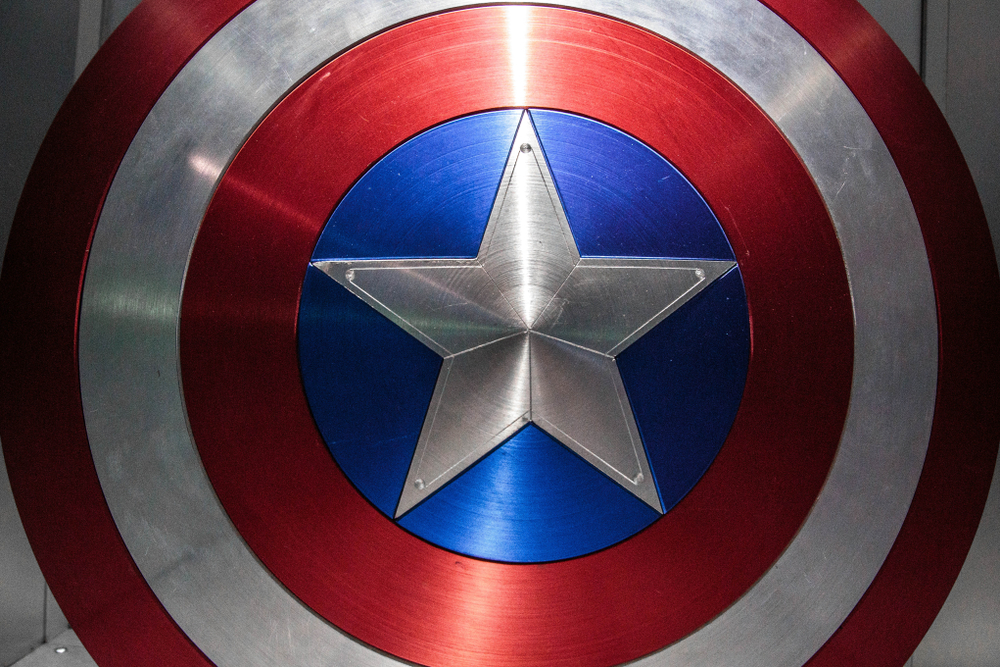On the heels of WandaVision, Disney’s much-anticipated (and, post-Episode 3, thoroughly entertaining) Avengers Endgame follow-up, comes Falcon and the Winter Soldier. I am thrilled to see the original Captain America’s (Steve, played by Chris Evans) besties holding their own as lead actors in their own show.
In the first episode, Falcon (fellow New Orleanian Anthony Mackie) and Bucky Barnes (Sebastian Stan) are adjusting to life post-Blip and realizing that saving the world doesn’t automatically entitle you to tangible benefits. Though Steve passes his shield onto Falcon after “retiring,” Falcon feels like it still belongs to Steve and donates the shield to the government. However, much to his chagrin, but not entirely a secret to die-hard Marvel fans, there is a new Captain America in town.
At the end of the first episode, John Walker (Wyatt Russell, Kurt Russell’s and Goldie Hawn’s son) is introduced to the world as the new Captain America, and wait … he’s holding Steve’s shield! Not surprisingly, Falcon and Bucky are not fans of the new Captain America, but animosity aside, he seems pretty impressive. In Episode 2, he comes to Falcon’s and Bucky’s rescue during a raid on the Flag Smashers (new super soldier villains).
Everyone knows that it is hard to fill Steve’s shoes (Don’t forget that Steve actually caught Thor’s hammer, Mjölnir!), but citizens of the Marvel Cinematic Universe are looking for a new hero after all they’ve been through. But is Walker the right choice? The comics ultimately reveal that Walker is “U.S. Agent,” an anti-hero, but will the series stick to the comics?
How to Hire a Super Hero
An employer subject to the Fair Credit Reporting Act (FCRA) and state “mini-FCRA” laws, which are generally more restrictive than the FCRA, can obtain investigative consumer reports, i.e., background checks, of job applicants from credit reporting agencies (like Experian, Equifax, and Transunion) and utilize those results to make hiring decisions.
The FCRA is a federal consumer protection statute that regulates the collection and reporting of a consumer’s personal information for credit, employment, insurance, and other purposes. Essentially, furnishers and users of consumer credit information are regulated to ensure consumers’ privacy is protected. Investigative consumer reports, in addition to the objective information contained in consumer reports (like arrests and creditworthiness), can contain subjective information on a person’s character and reputation, gathered from personal interviews with people who know the applicant.
Furthermore, under the FCRA and state law, there are also procedures to be followed when the denial of an applicant’s employment is based on the results of a consumer report.
First, the FCRA requires a signed authorization from the applicant, which can generally be incorporated into the application itself. However, the content and form of the authorization may be governed by state law. Second, the FCRA requires that the employer provide, in a stand-alone document separate from the job application, a “clear and conspicuous” disclosure that the report may be used by the employer for “employment purposes.” Like the authorization, some states have mini-FCRA laws that regulate the content of disclosures.
In addition, the employer must also provide the applicant the Consumer Financial Protection Bureau’s summary of rights under the FCRA; certify it has complied with all notice and disclosure requirements; and inform the applicant that the employer will request an investigative consumer report, including what kind of information will be obtained and the scope of the investigation and that the applicant has the right to request additional information about the investigation. Again, some states may have mini-FCRA laws that govern investigative consumer reports.
Now, back to the new Captain America. Would an investigative report have revealed Walker’s past, including his association with the “Power Broker,” the person from whom he gained his super powers? What about his former moniker, “Super Patriot”? What about his criticism of and/or obsession with Steve? Would his employer’s knowledge of these things have caused it to choose another Captain America replacement, like his partner Battlestar (Clé Bennett)? Or was an investigative report done after which the employer determined these traits were desirable?
Ordinarily, we would never know; however, Marvel has a habit of coming up with alternate timelines (we see you, Spiderman Multiverse), so maybe we will.
The post The New Captain America appeared first on HR Daily Advisor.
